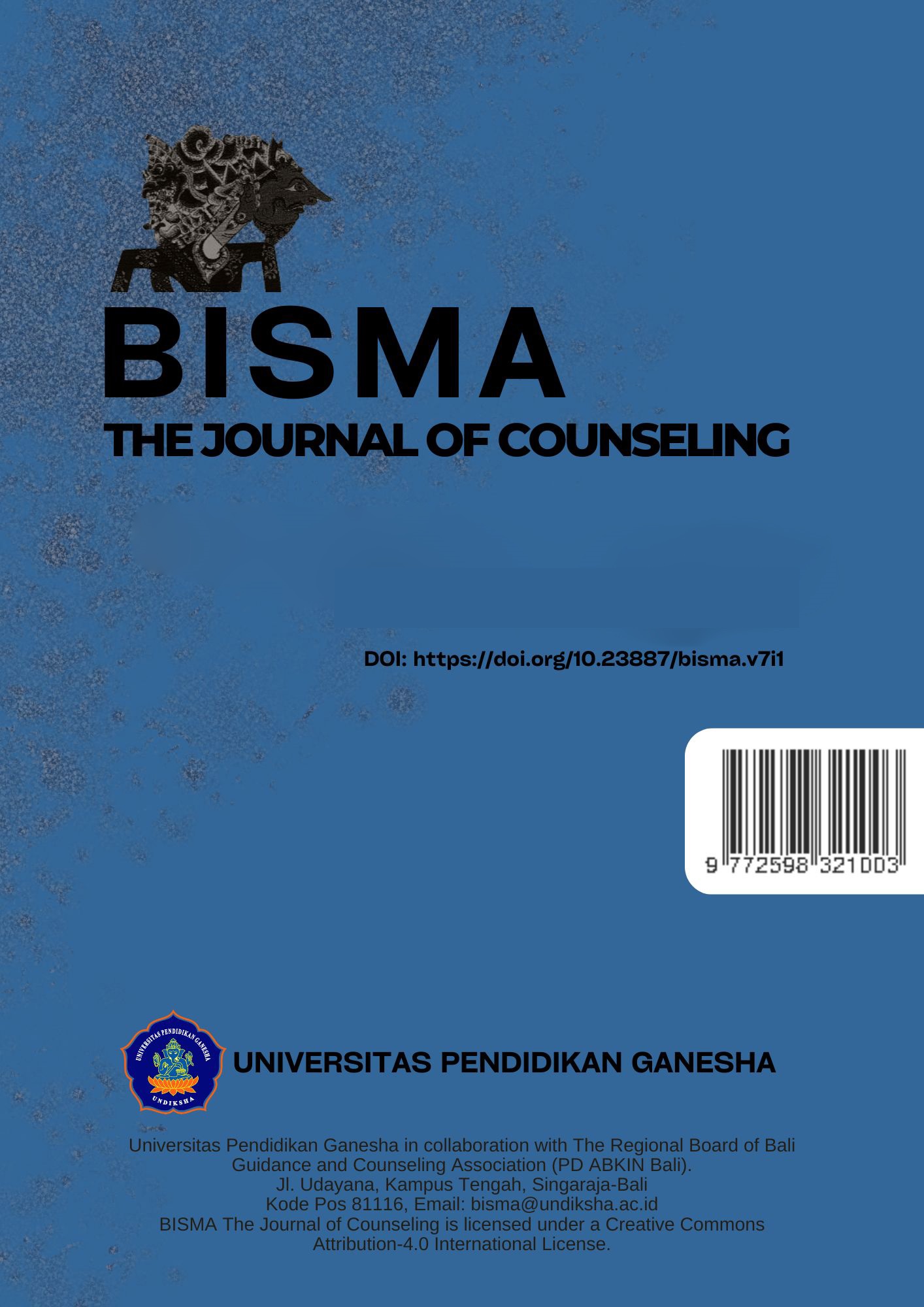Gender Differences in Self-Harm Behavior Among University Students Victimized by Bullying
DOI:
https://doi.org/10.23887/bisma.v8i3.87862Keywords:
Self-Harm, Bullying, Student University, Gender, Counseling ServicesAbstract
The underlying issue of this study is the increasing prevalence of bullying as a concerning social problem in education, which negatively impacts victims, including a tendency toward self-harm behavior as a maladaptive coping mechanism. This research aims to describe self-harm behaviors among university students who are victims of bullying and to examine gender differences in these behaviors. The study employs a quantitative approach with a descriptive method. The sample comprises 261 university students who experienced bullying, selected using purposive sampling techniques. Data were collected using the Self-Harm Inventory (SHI) and analyzed descriptively and comparatively. The findings reveal that 70.93% of students exhibit low levels of self-harm behavior. However, significant gender differences were observed, with female students showing higher levels of self-harm compared to male students. This study concludes that although the majority of students fall into the low self-harm category, the moderate category requires special attention, particularly among female students. Based on these findings, it is recommended that universities adopt strategic measures to prevent bullying through both preventive and curative approaches. The implementation of effective counseling services and intervention programs can be significant efforts to reduce the impacts of bullying and self-harm behaviors among students.
Published
Issue
Section
License
Copyright (c) 2024 Puji Gusri Handayani, Hafiz Hidayat, Lisa Putriani, Frischa Meivilona Yendi, Rahmi Dwi Febriani, Azmatul Khairiah Sari, Soechi Izzati Adlya, Azzahra Hardi Gusinia

This work is licensed under a Creative Commons Attribution 4.0 International License.








